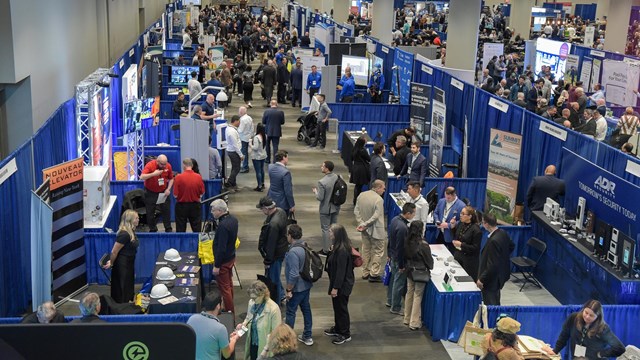Preparing the annual budget for a condo association or HOA isn't quite like figuring out a budget for a couple, or even a large family. The board of a multifamily building or association has to consider all the angles—past, current, and future—when formulating a financial roadmap for their community. Fortunately, while every community may be unique, there are a few budgeting basics that apply to every HOA and condo association, and knowing them will help boards and managers keep a better handle on their building or association's money matters.
“The board is the fiduciary for the association,” says Mary Faith Nugiel, principal with RCP Management Company in Monroe, New Jersey. “As such, they need to make sure they have knowledge of the association’s finances and spend adequate time on financial planning...to insure that the association members are as protected as possible from financial disasters. The manager is responsible for providing the board with the best information possible so it can do its job in an efficient and professional manner. The manager should evaluate the association financials and make recommendations to the association members. This requires a manager well-trained in association financial analysis.”
Know Your Terms
Budgeting for condo associations and HOAs actually involves not one, but two budgets: the operating budget, and the capital budget. Recurring, more or less predictable expenses such as taxes, utilities, staff salaries, insurance and maintenance are the line items most frequently found in the operating budget. Major projects, and long term plans, and emergency funds are budgeted for in the capital budget, and those items will vary, depending on the individual community’s needs, wants, and means.
While expenses are divided into operating or capital expenses, income is generally obtained only from HOA dues or fees, and any fines or penalties incurred and repaid by residents. When any member of the board is unclear or confused on which budget should be assigned which cost, it can be difficult for the board to function properly and to uphold the fiduciary duties for the community. That's why it's important for every board member to have at least a working familiarity with the way their community's budgets function and interact.
The Budgeting Process
Reviewing the existing budget and formulating a budget for the upcoming year is an annual duty for the HOA board. Association managers play a central role in the budget, and the process starts with them. “The manager is the one that usually prepares the draft budget. He reviews it with the treasurer, and the finance committee, and the board. The managers usually revise it and make any changes, and they'll mail a summary of the proposed budget to the owners,” says Steven Silberman, a CPA with the nationwide accounting firm of Marcum, LLP, based in Deerfield, Illinois.
After any changes and adjustments are made, the board will likely hold a budget workshop meeting for additional fine-tuning, and then formally approve the budget in a final board meeting. The pros advise boards to actively solicit feedback from owners in the community to make sure they understand residents' needs, expectations, and concerns, and take those into consideration as they're drafting and ratifying the budget.
The responsibility for creating an annual budget generally falls to the association’s president, secretary, and treasurer, with input and assistance from the community's accountant and attorney. Most boards will rely on the accountant or CPA to work with them more closely at budget time. Most accounting pros recommend working about three months out before an approved budget is expected to allow sufficient time for fine tuning. This rule of thumb will work for association on either a calendar year or a fiscal year timetable.
Matthew Kuisle, PE, RS, PRA, client services director with Reserve Advisors, a national firm with offices across the country, recommends starting the budgeting process even earlier when possible. “Budgets are often created by managers, boards, and committee members and these individuals often consult accountants, attorneys, professional reserve analysts and other experts for guidance. Boards typically vote to approve the budget at an annual meeting of the membership.”
As a 'best practice' Kuisle recommends keeping budget folders for upcoming years to understand proposed projects and contracts for each year and the changes that might be required in each budget. “A reserve study can be done as a first step to help set the budget for capital repairs and replacement projects,” he says. “This approach can help anticipate the expense of large reserve projects and allow ample time to build the reserves.” Kuisle suggests using a professional engineer for the reserve study to help eliminate any big surprises in the budget.
Most accountants recommend the use of a reserve schedule formula to further indicate when a repair or replacement project will mostly likely be needed. Reserves are usually calculated by using a formula that takes into account the useful life of an item, the remaining useful life, and the replacement cost component. This information is typically required to be stated on most community association budgets, he says.
Kuisle also recommends allocating funds for near term services, while keeping a strategic plan in place for the future. “We see many energy-saving options for buildings today. Everything from lighting modifications to geothermal heating options can lower energy usage and costs over time. These modifications generally require an initial capital investment however, so it is important to keep these future expenses in mind when budget planning.”
How associations handle their reserve studies tend to be a good litmus test of how good their budget practices are as a whole. The basic principles of a good process involve planning for the future as much as possible, and then adjusting to changes in an efficient manner. “It's important to have a current study in place. Years 1 through 5 are the most important," says one accounting pro. "Things farther out in the future are more rough estimates. Staying current with your reserve study is 100% important to the budgeting process."
While these suggestions and recommendations may sound like a lot of work, 75 to 80 percent of the budget is normally reoccurring expenses, like utilities, insurance, and lawn maintenance. It often helps to look at the history of both the projected income and expenses. If the income remains stable, allowing for 5 to 10 percent increase in expenses will usually adequately allow for any inflation. Repairs are difficult to estimate, but the best boards allocate a healthy amount of cash for unforeseen circumstances, and then carry over any leftover into a discretionary budget for the following year.
Factoring in Capital Expenses
Repairs, wind or storm damage, painting, roofing, pool resurfacing and other restoration projects are paid from the capital budget. When a board is underfunded (as many were in the recent Recession) special assessments may be required to fund capital projects, however, most boards will take a proactive stance to avoid special assessments whenever possible. So who is best qualified to help determine future cost for big projects in the budget?
“Contractors and service providers can help with annual cost,” says Kuisle, “but an independent reserve analysis can best determine future annual cost and times of big projects. The independent analysis should arm a board with lots of information that can help define the scope of projects and even negotiate better contracts and save the association money.”
Many accountants favor reviewing the past expense history and obtaining cost estimates from contractors or engineers to better determine the estimated cost of future expenses and projects. “We'll see that an association manager will budget either a miscellaneous account so they have a little bit of a cushion in case there are overages on certain things, in case there are unforeseen items in the budget,” says one CPA. By contacting vendors early, a board may also negotiate a better rate with the current provider, or have time to shop for better pricing, particularly if contracts are up for renewal.
The More You Know...
In addition to the general 60-90 days of working capital, the pros say a good rule of thumb for every association is to also have some 'rainy day' savings. By being proactive and budgeting for emergencies that do not materialize, a board may build a surplus. While this can be a nice problem to have, once a surplus is accrued the board and management team have a legal and moral obligation to show those funds in the annual statements and financial reports. How the surplus is handled depends on the individual property, and the needs of the community.
An association may opt to have excess funds rolled into working capital, or transferred to the reserves. There is always the option of refunding the surplus to the residents, but often that is not the best course of action, and everyone agrees refunds are a rarity. Some associations may vote to save the surplus in an interest bearing account, roll it over to the following year, or allocate the surplus funds for a special project. Whether surplus funds are saved, rolled over, or spent on special projects any community managed well enough to have a surplus is sure to benefit from the extra funds.
And of course, even if you have a professional accountant or financial advisor on your board, more education for board members is never a bad thing. In addition to professional advisors, Nugiel says that the Community Associations Institute (CAI), and The Institute or Real Estate Management (IREM), both of which have Nevada chapters, have vast resources to help board members manage their HOA's money matters. “There are books, periodicals, short GAAP reports and DVD’s available in addition to regular educational seminars,” she says. For example, CAI publishes a 'Best Practices Report' for Financial Operations' that is written in layman's terms and costs very little, and The Nevada Cooperator offers articles like this one, both in print and online, as well as hosting educational seminars on financial management at their annual Cooperator Expo each spring in Las Vegas. The American Institute of Certified Public Accountants (AICPA) also offers an Industry & Audit Guide for Common Interest Realty Associations, and there are guides published by Practitioners Publishing Clearing House for homeowners associations.
The takeaway message is that while running your building or HOA's financial operations might seem intimidating at first, doing some homework to familiarize yourself with your community's financial profile, planning ahead with the help of competent professionals, and keeping things transparent among both board and residents will make it a whole lot easier—both for your current board, and for boards to come.






Leave a Comment